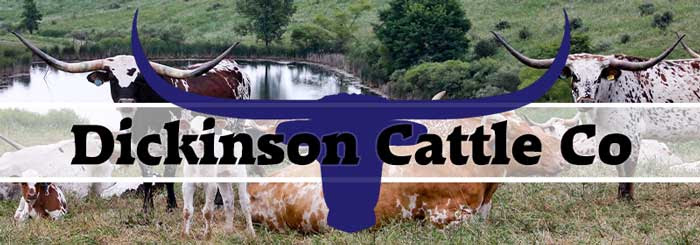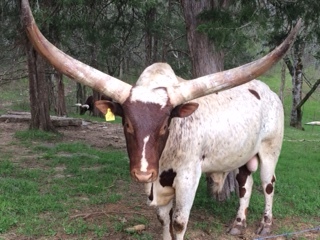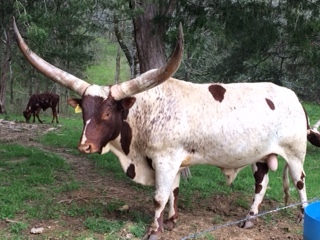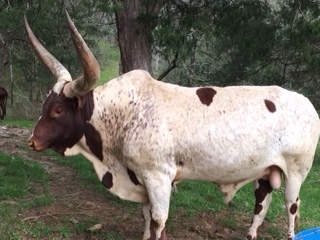|
|
|
|
|
|
|
|
|
|
|
|

In 1987, Dr. Ben Carson was the lead neurosurgeon of a 70-member surgical team that separated conjoined twins, Patrick and Benjamin Binder, who had been joined at the back of the head (craniopagus twins); the separation surgery held promise in part because of the hopeless existence had Carson not operated.
Conjoined twins are identical twins[1] joined in utero. An extremely rare phenomenon, the occurrence is estimated to range from 1 in 49,000 births to 1 in 189,000 births, with a somewhat higher incidence in Southwest Asia and Africa.[2] Approximately half are stillborn, and an additional one-third die within 24 hours.
 Whether it is human, animal or hatched fowl, deformities and mutations happen. Of course no one wants these unusual beings, but every effort is usually made so they will have a normal life.
Whether it is human, animal or hatched fowl, deformities and mutations happen. Of course no one wants these unusual beings, but every effort is usually made so they will have a normal life.
Every now and then calves are born with a condition called contracted tendons. It results in the calf not being able to straighten out its front pasterns so they can put their hooves flat on the ground.
Calves that have this end up walking with their front hooves turned back. Some people refer to this also as knuckling.The most often mentioned theory revolves around insufficient room in the uterus for extension and growth of the tendons. Most believe it more often occurs in older cows and in bull calves who form a ball in the uterus. For long periods the ankles are bent back and the tendons do not stretch pre-birth.
Some say it may be mineral related. The minerals that may be involved are manganese and selenium. Vitamin D and E also play a part in muscle and tendon growth in the infantile calf.
Unfortunately, this condition does not have a well-defined cause or solution that I’ve been able to find.
 Recently on Facebook this photo was published with questions about the why and how of the issue. What causes it and what does an owner do?
Recently on Facebook this photo was published with questions about the why and how of the issue. What causes it and what does an owner do?
Certain plants ( lupine, locoweed, bluebonnet, and poison vetch), if eaten by the pregnant female at just the right point in gestation may contribute to the problem.
The affected calf may straighten out after hobbling around several days, depending on the severity of the knuckling. It’s important in the first few days to make sure the calf nurses. Keeping the cow and calf in a smaller area is advised.
Many years ago at DCC a Buelingo calf was born knuckled. We let her attempt to correct and it was not humane. She began to get sores on the front of her ankles above the hoof from walking on the skin.
We carved two small boards about a foot long and rounded the corners. Both legs below the knee were wrapped with cloth. A big ball of cloth was placed on the joint above the ankle. The lower leg was stretched straight to where the calf could walk on the hoof correctly. Then the whole thing was wrapped with vet wrap. She immediately began to run and play.
In a week or so the splints were removed and no one would ever know that was a problem.
From veterinarian articles no appearance of genetic future occurrences were recorded.
Hopefully this will help when or if you ever have one. You don’t have to call Dr. Carson, just do it yourself. DD
View this article Online: https://www.texaslonghorn.com/
We are accepting nominations for candidates to the Board of Directors of the World Watusi Association for the fall 2019 election. There are 3 positions available. If you are interested or know of someone who would be please contact any member of the Nominating committee. Chairman; Garett Judd, garettjudd@yahoo.com, 270.670.7787: Vernon Base, vernonbase@gmail.com, 620-747-0798: Cindi Darling, watusi@liarslake.com, 417-634-4115. All nominations should be submitted by June 15, 2019. The 3 year positions up for election are those currently held by Pat Burnett, Sheri Gurr and Matt Moffatt.
 Foundation Pure Watusi Bull Registration # WWAFP4169 Rockin Gladiator, We call him Rocky!
Foundation Pure Watusi Bull Registration # WWAFP4169 Rockin Gladiator, We call him Rocky!

Under our FORMS menu we have available the submission form for measuring the horns of our animals. This is not a requirement, but we are attempting to build a data base with this information. Horns are obviously the most prominent feature of this breed and by setting up records we can use this information for marketing and breeding.
The fee for submission of this form to our office is $20.00 to cover the entry of the information on our database. The owner is welcome to submit their own measurement, however we do offer an Official measurement by qualified representatives. One representative can measure and submit the information on a live animal. A skull requires two representatives. We do have representatives available at our sanctioned auctions. Presently they will be at the Macon sale at Lolli Bros.
If there is an interest Blake Edwards is willing to offer a class at the Macon auction. Contact Blake at redhillwatusi@gmail.com or at 580-430-5050.
Robin Hancock our registrar wants to let our members know that there are new Registration Forms on the website as well as an updated Fee Schedule. She would like to remind all members that you can submit your photos of your animal to her by email, but that she needs to have THE ORIGINAL, SIGNED application sent in to the office with your payment. All too often she is receiving scanned copies by email and just the check in the mail.
Once again we are on the short haul to the spring sale at the Lolli Bros. Alternative Livestock sale in Macon, Missouri. www.lollibros.com
Many different species are offered at this sale over it’s four day duration. Our watusi cattle will be available in the ring on Thursday April 11. Be sure to attend.
We will also have our annual Spring Fling meeting and dinner as well as the spring meeting of the WWA Board of Directors The get-together’s including the Board meeting will be held in the community room at the Comfort Inn, 1821 N Missouri St, Macon, MO 63552. Board meeting will be at 4:00pm. All members are welcome. In addition to regular business items we will be discussing a revamping of our website. At 7:00 pm we will meet for our get-together and dinner. Once again we will be catered by Nolands with a taco and baked ham buffet. It would help if you are going to attend that you contact Garret Judd at garettjudd@yahoo.com or (270) 670-7787 • Mobile with the number in your party.
After dinner we will have our Fun Auction of donated items. Please be creative and bring an item and your checkbook to buy. See you there.
wwa-registration-application-2019-form
It has been brought to our attention that some of our members are unclear on the instructions when submitting their applications for registration and photographs. Any missing information or incorrectly submitted information can result in a delay in your registration not to mention causing a backlog to our registrar.
All the spaces on the application need to be addressed each line is numbered and has instructions on the form. They are pretty self explanatory, but if you have any questions please feel free to call the office.
#1 We do still identify our animals by their gender. It is either an intact male, neutered male or female. Check the box.
#2 Name your animal. You can check online in our pedigree pages to see if a name you choose is available. No matter how much you like Daisy, there can only be one Daisy. Using a herd identifier is the best solution as you can still use Daisy. If you choose to utilize a herd identifier i.e. BSR for Big Sky Ranch be sure to count those letters and/or numbers in the total of 24 spaces allowed for the animal’s name.
#3 & 4 Physical identifying marks. Our registry does not require either holding brands or tatoos, although we do highly recommend their use. If you have any of these on your animal described them and their locations on these lines.
#5 & 6 Sire and Dam: All of this information is also available in the Pedigree section of the website for the sire the dam and their sires and dams.
#7 Your WWA membership number, you name and address. The name that you list is how your registration certificate will be recorded. This can have legal ramifications so be certain to think of that status prior to submission.
#8 Your signature
#9 Date of Application
#10 Type of birth. Natural, AI or Embryo.
#11 Number at birth single, twin or multiple. Although our form does not currently call for it, you should list the number and sex i.e. 1 bull/1 heifer.
#12 Description of color and pattern.
Parts of Animal Abbreviation
Back BK
Body BDY
Brisket BSK
Ears ERS
Forehead 4-HD
Flank FLK
Feet FT
Head HD
Hindquarters HNDQTRS
Hip HP
Lineback LB
Loin LN
Neck NK
Rump RMP
Shoulders SHLDRS
Switch SW
Underline UL
Tail TL
Thigh THI
Color. When giving color descriptions, begin with the most dominate color. The description should be as short as possible and remain complete. For example, red with white spotted sides should be abbreviated as “RD w/ WH Sptd sides.”
Colors Abbreviation
Black BLK
Blue BLU
Brown BRN
Brindle BRNDL
Dun, Dull Grayish Brown DUN
Grulla GRU
Light LT
Red RD
Roan RN
Speckled SPKLD
Spotted SPTD
Spots SPTS
Streaked STRK
White WH
Yellow YL
Photos are one of the major problems all of us seem to have. It is a pain to have to take three different photos, but it is very important especially when we are not branding and/or tatooing.
These photos may be sent in physically or emailed to the office. There are some importance items to pay close attention to:
FROM ONE OF OUR MEMBERS:
Hello Members,
At Dr. King’s® Natural Meats & Carolina Bison®, we are excited to announce our new USDA labels for Yak and Watusi meat. As many of you know, we have been in the meat industry and raising bison and Watusi since 1985. This industry is part of our mission, because wild meats offer such tremendous health benefits. We supply natural meats to thousands of retailers, and we’re now happy to expand our meat offering to all of our partners in the industry to buy at wholesale prices. We are offering all cuts of Watusi and Yak, including but not limited to: ground, rib-eye steak, strip steak, sirloin steak, and filet steak. In addition to all the health benefits of Yak and Watusi meat, both offer unique, quality flavor profiles. Our pricing is comparable to our bison meat; please see attached Watusi and Yak meat prices. Providing these quality meats on your farm and website will help build your business and promote these very special breeds. It is our intention to work together as a unified force to best grow these specialty industries. It is essential to have an uninterrupted, seamless supply of product to build a business. We have approximately 1,000 head of Yak and Watusi available for harvest. Our theme is, “It takes a team to fulfill the dream.” Check out our website www.drkings.com/farms for more info about our meats and also our available inventory. Or call (828)236-1659. Thank you It is a great honor to serve and be a part of these budding industries.
| DR. KING’S NATURAL MEATS – AFRICAN WATUSI | ||||
| ALL NATURAL PRODUCT, NO ANTIBIOTICS, NO GROWTH STIMULANTS | ||||
| ALL ITEMS 1/4″ TRIM, USDA INSPECTED, ALL PRICING FOB | ||||
| ALL PRICING SUBJECT TO CHANGE | D | |||
| 9.06.2018 | ||||
| BOXED SUBPRIMALS | ||||
| ITEM DESCRIPTION | NAMP # | PRICE LB | PC/CS | AVG CS WT |
| TOP INSIDE ROUND 1/4 TRIM | 168 | $9.51 | 2 | 30 |
| TONGUE | $4.97 | 20 | ||
| CHUCK ROLL N/O | 116A | $9.51 | 1 | 25 |
| BRISKET | 120 | $9.51 | 2 | 30 |
| SHORT RIBS | 123A | $5.65 | 8 | 25 |
| STRIPLOIN 0X1 | 180 | $18.96 | 2 | 17 |
| RIBEYE LIPON | 112A | $18.96 | 2 | 20 |
| TENDERLOIN | 189A | $26.52 | 4 | 15 |
| FLANK | 193 | $10.68 | 12 | 25 |
| INSIDE SKIRT STEAK | 1121D | $10.52 | 14 | 60 |
| CASE READY | ||||
| RIB EYE STEAK | 1112A | $22.10 | 8 | 5 |
| FILET MIGNON | 1189A | $33.74 | 8 | 3 |
| TOP SIRLOIN STEAK | 1184 | $16.25 | 8 | 5 |
| NY STRIP STEAK | 1180 | $22.10 | 8 | 5 |
| 1 LB GROUND | $9.44 | 12 | 12 | |
| FOODSERVICE | ||||
| 5 LB GROUND | $9.25 | 2 | 10 | |
The WWA Fall Social and Annual Membership meeting will be held September 26th 2018 at 7PM at the Comfort Inn Confrence Room , 1821 N Missouri St, Macon, MO 63552; (660) 395-8000. This event will feature a catered meal, lots of watusi talk and a fun auction. We will need to get a head count for the meal closer to the time. Any donations to the associations for the fun auction are always greatly appreciated. All items are welcome, it does not have to be expensive or large. All proceeds go to support your association. We will also have WWA merchandise and T Shirts for sale at the meeting.
The Board of Director’s will meet at the Macon Comfort Inn at 5:00pm on Wednesday September 26. Any member that wishes to may attend.
Cattle will sell on Thursday September 27 at the Lolli Bros. livestock market. Cattle consigned can be viewed at World Watusi Association Online Auction on Facebook.
